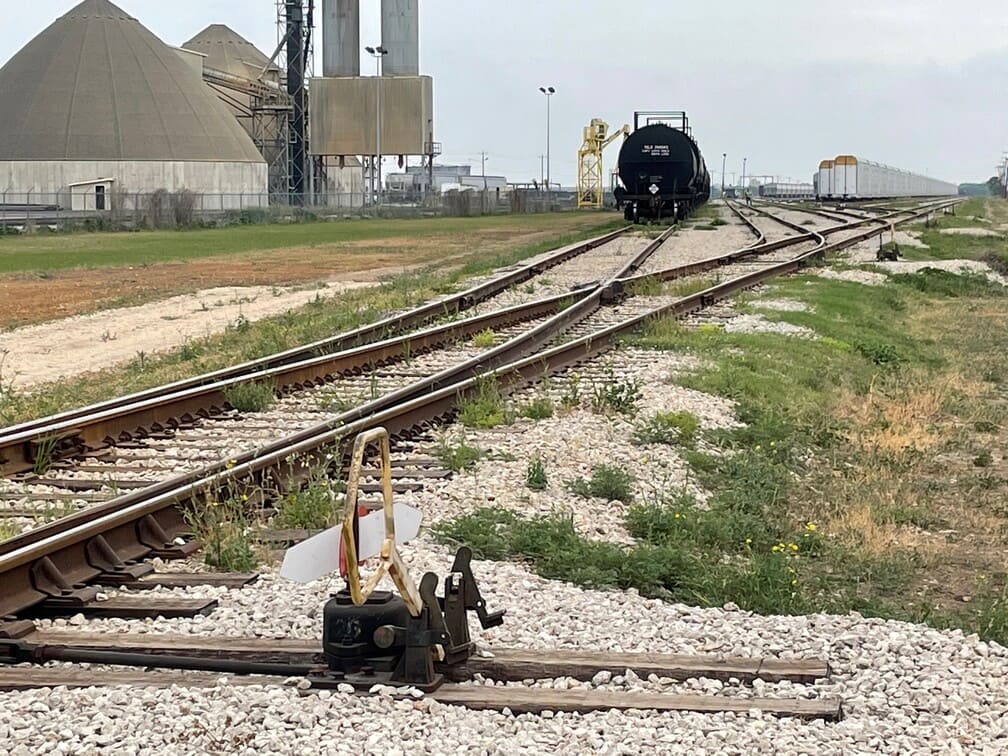If your company owns and uses industrial railroad trackage for distribution or other purposes, you need to be aware of the responsibilities and risks that come along with owning track. Having regular inspections performed by qualified inspectors not only helps your company steer clear of civil penalties but also helps you maintain safe track conditions, spot potentially costly issues early, and make effective plans for long-term track maintenance. Keep your company’s operations running smoothly by understanding the basics of track inspection.
1. What is track inspection?
Track inspection is the monitoring of railroad trackage to detect defective conditions and take steps to resolve identified issues. During the inspection process, information about track conditions is collected, records are made, and recommendations for action may be given. Usually, a track inspection is performed by an individual who visually examines the track while walking on foot or riding in a vehicle.
2. Why do I need track inspection?
As a track owner, you are responsible for complying with the track safety standards laid out by the Federal Railroad Administration (FRA) in 49 CFR Part 213 – Track Safety Standards. This part describes the minimum safety requirements for railroad track. It also mandates that regular track inspections be performed, and it places responsibility on the track owner to ensure that they take place.
3. What happens if the proper inspections are not performed on my track?
Without proper track inspections, you run many risks. First of all, failing to have track inspections performed in the manner prescribed by 49 CFR Part 213 can land you in trouble with the FRA. If the FRA determines that you are not complying with their minimum safety standards, they can take enforcement action against you, which may include civil penalties.
In addition, since inspections are important for track maintenance and safety, not having the required frequency of inspections, or not having them performed properly, could lead to improper track conditions. This, in turn, could lead to derailments. This is especially important because track/infrastructure failure is the number two cause of derailments in the U.S.
4. How often do I need a track inspection?
If your trackage is used at least once a week, you will need inspection on a regular, reoccurring basis. Special circumstances may require additional inspections.
Regular Inspections
Depending on class of track and other factors, your track may need inspection monthly, twice-weekly, or somewhere in between.
Special Inspections
You are also required to have an inspection immediately after an event that could have damaged track, such as a flood or severe storm. This means that if you operate in an area with a high risk of such occurrences, you should factor in the need for special inspections when determining your inspection plan.
5. Who can inspect my track?
Not just anyone can perform FRA-approved track inspections. You must use inspectors who are FRA 49 CFR Part 213 qualified. If you want to find or train an inspector on your own, here are some important points to keep in mind:
- Your inspector will need at least one year of track inspection experience, or a mix of experience and track inspection training.
- Your inspector must be able to demonstrate to you that they have the knowledge to detect deviations from FRA track safety standards and recommend appropriate corrective actions.
- If your track is constructed with continuous welded rail, your inspector must also have specific qualifications on the installation, adjustment, maintenance, and inspection of CWR.
If you don’t want to find inspectors on your own, another option is to work with a consultant who can supply you with FRA-qualified inspectors. For example, RailPros provides qualified, experienced track inspectors to clients nationwide.
At the end of the day, having regular track inspection is a fundamental safeguard for any industrial company utilizing railroad track. By having qualified inspectors performing inspections on the prescribed schedule, you will be in compliance with federal regulations, protecting your employees, and protecting equipment used on your track.
If you are interested in obtaining FRA 49 CFR Part 213-qualified inspectors with years of railroad experience, RailPros can help. Contact our track inspection team to find out how we can take care of your company’s inspection needs.
